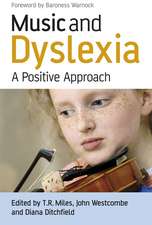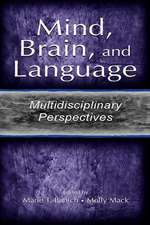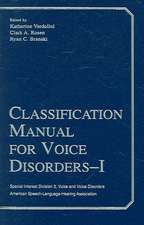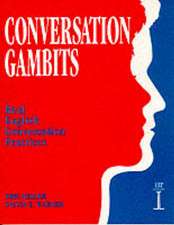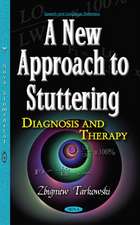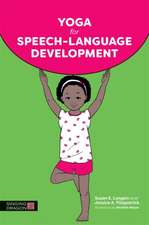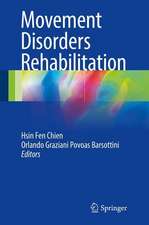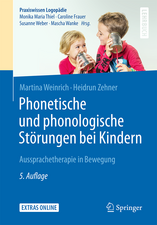Motor and Sensory Processes of Language: Neuropsychology and Neurolinguistics Series
Editat de Eric Keller, Myrna Gopniken Limba Engleză Paperback – feb 1987
Preț: 567.82 lei
Preț vechi: 668.02 lei
-15% Nou
Puncte Express: 852
Preț estimativ în valută:
108.67€ • 112.26$ • 90.44£
108.67€ • 112.26$ • 90.44£
Carte tipărită la comandă
Livrare economică 26 martie-09 aprilie
Preluare comenzi: 021 569.72.76
Specificații
ISBN-13: 9780898596311
ISBN-10: 0898596319
Pagini: 326
Dimensiuni: 152 x 229 x 18 mm
Greutate: 0.44 kg
Ediția:1
Editura: Taylor & Francis
Colecția Psychology Press
Seria Neuropsychology and Neurolinguistics Series
Locul publicării:Oxford, United Kingdom
ISBN-10: 0898596319
Pagini: 326
Dimensiuni: 152 x 229 x 18 mm
Greutate: 0.44 kg
Ediția:1
Editura: Taylor & Francis
Colecția Psychology Press
Seria Neuropsychology and Neurolinguistics Series
Locul publicării:Oxford, United Kingdom
Public țintă
ProfessionalRecenzii
"...a difficult book, packed with experimental detail and intricate argument. But it will repay the persevering reader with a lode of fact, insight and provocative theory."
—Contemporary Psychology
—Contemporary Psychology
Cuprins
1: Jacques Lordat or the Birth of Cognitive Neuropsychology; 2: The Role of Word-Onset Consonants in Speech Production Planning: New Evidence From Speech Error Patterns; 3: Production Deficits in Broca's and Conduction Aphasia: Repetition Versus Reading; 4: Damage to Input and Output Buffers—What's a Lexicality Effect Doing in a Place Like That?; 5: Phonological Representations in Word Production; 6: The Cortical Representation of Motor Processes of Speech; 7: Programming and Execution Processes of Speech Movement Control: Potential Neural Correlates; 8: Intrinsic Time in Speech Production: Theory, Methodology, and Preliminary Observations; 9: Kinematic Patterns in Speech and Limb Movements; 10: Routes and Representations in the Processing of Written Language; 11: Speech Perception and Modularity: Evidence from Aphasia; 12: The Neurofunctional Modularity of Cognitive Skills: Evidence from Japanese Alexia and Polyglot Aphasia




